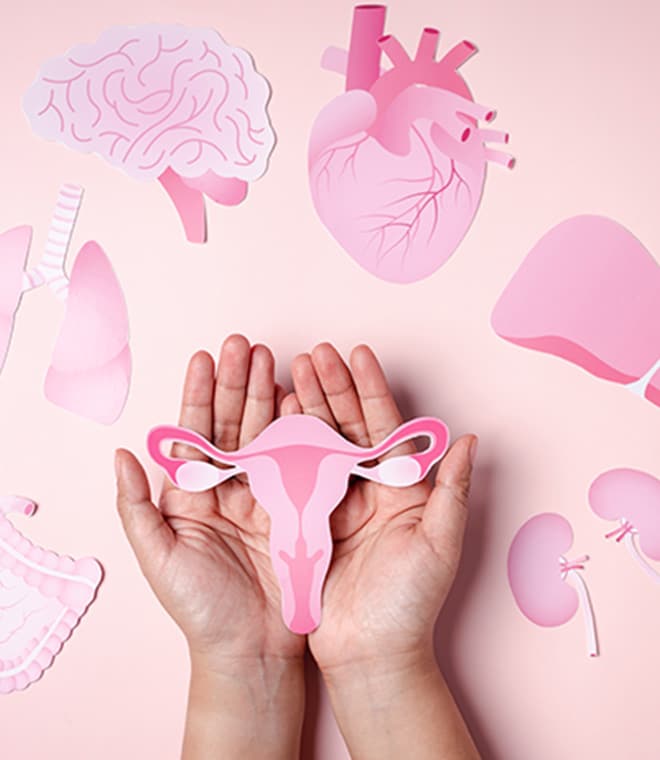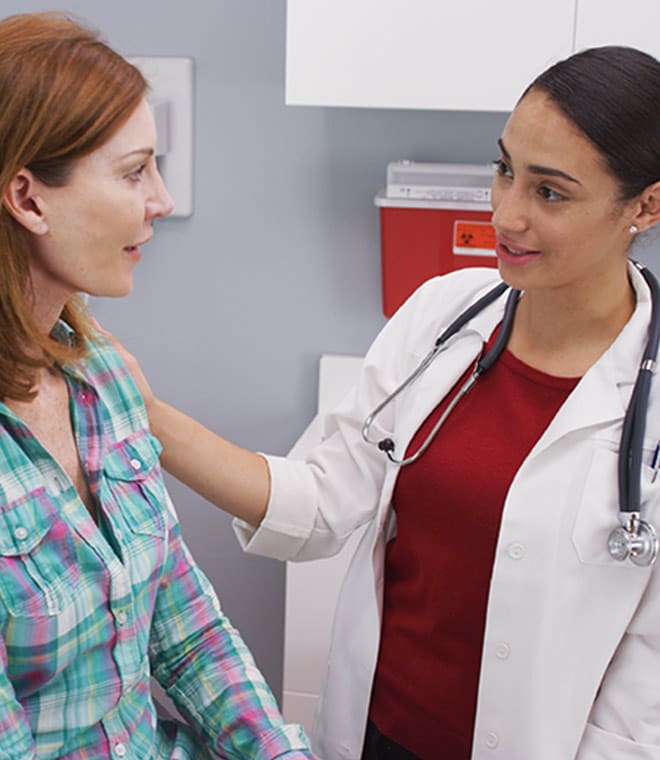Health
What are the different stages of menopause?
By Patricia Ann Convery, MD, Fellow, American College of Obstetrics and Gynecology Mar 27, 2025 • 5 min
Menopause consists of three stages: perimenopause, menopause and postmenopause. Knowing what the difference between the stages are and what symptoms may occur during each stage can help you prepare for the transition out of your childbearing years.
1. Perimenopause
The first stage of menopause, perimenopause, occurs when your menstrual cycle starts to change and becomes irregular but doesn’t stop entirely. During this stage, levels of estrogen fall, and your other hormone levels can start to fluctuate.
When it happens: Women can experience perimenopause two to eight years before menopause begins. However, it can start sooner or later. Typically, women will enter perimenopause in their mid-40s.
What it’s like: Many of the symptoms we refer to as “menopause symptoms” actually begin during perimenopause. Some common symptoms include:
- Irregular and skipped periods
- Heavier or lighter periods
- Vaginal dryness, which can lead to discomfort during sexual intercourse
- Hot flashes
- Night sweats
- Urinary issues such as urinary tract infections (UTIs) and loss of bladder control
- Difficulty falling asleep, waking up frequently during the night and waking up too early
- Irritability
- Mood swings
- Anxiety and depression
You may not experience all of these symptoms, and severity may also vary from person to person.
If you believe you’re experiencing perimenopause symptoms, talk to your healthcare provider. Symptoms of medical conditions, like thyroid disease, can mimic those of menopause, so it’s important to rule out any other potential cause. Should your healthcare provider determine that you are in the first stage of menopause, they can discuss lifestyle changes, self-care tips and medical treatments that can help you manage symptoms.
2. Menopause
Following perimenopause, menopause occurs when you have gone without a menstrual period for 12 months and there is no other medical cause. Although considered a stage, menopause is more like a point in time. Once you reach menopause, you immediately proceed to the next stage, which is postmenopause.
When it happens: The average age women reach menopause is 51 or 52. It’s normal to reach menopause any time after the age of 45. Some women may experience early menopause between the ages of 40 and 44. Premature menopause can occur before age 40. However, there’s usually a medical cause like surgical removal of the ovaries or an autoimmune disorder.
What it’s like: Once you reach menopause, your periods stop for good, and you can no longer get pregnant through natural means. For some women, the symptoms of perimenopause may continue through menopause.
3. Postmenopause
The final stage of menopause, postmenopause, begins when you stop having periods. During postmenopause, see your healthcare provider regularly so they can monitor you for early signs of conditions like heart disease and osteoporosis.
When it happens: The timing of postmenopause depends on when you stop having periods. As with menopause, the average age for the start of postmenopause is age 51 or 52.
What it’s like: Perimenopause and menopause symptoms, like hot flashes, vaginal dryness, mood changes and insomnia, may persist for the first few years of menopause. You may also experience hair loss, urine leakage (incontinence), or dryness of the skin, eyes or mouth. Weight changes may also occur during postmenopause.
During postmenopause, your risk of heart disease, heart attack and stroke may increase. Your bone density starts to decline after menopause and can lead to osteopenia or osteoporosis. These conditions can increase your risk of low-trauma fractures. Postmenopausal women may also experience thinning, dryness and inflammation of the lining in the vagina, which can make intercourse painful.
A nutritious diet and regular exercise can go a long way toward helping you weather the physical symptoms of perimenopause and reducing potential health risks in postmenopause. If you’re struggling with emotional issues around going through “The Change,” you may want to join a support group or talk to a licensed therapist who can help you embrace the many benefits of growing older and wiser. Over-the-counter menopause products can also be helpful for some women.
Updated by Julie McDaniel, MSN, RN, CRNI, March 2025.
Sources:
- https://www.womenshealth.gov/menopause/early-or-premature-menopause
- https://www.acog.org/womens-health/faqs/perimenopausal-bleeding-and-bleeding-after-menopause
- https://www.womenshealth.gov/menopause/menopause-basics#2
- https://www.womenshealth.gov/menopause/menopause-symptoms-and-relief
- https://www.menopause.org/for-women/expert-answers-to-frequently-asked-questions-about-menopause/perimenopause-premature-menopause-faqs
- https://www.cdc.gov/womens-health/features/menopause-womens-health-and-work.html
- https://www.nia.nih.gov/health/what-menopause
- https://www.msdmanuals.com/professional/gynecology-and-obstetrics/menopause/menopause#Treatment_v1062847
- https://www.ama-assn.org/delivering-care/population-care/what-doctors-wish-patients-knew-about-menopause#
- https://www.ncbi.nlm.nih.gov/books/NBK560840/
- https://medlineplus.gov/menopause.html




